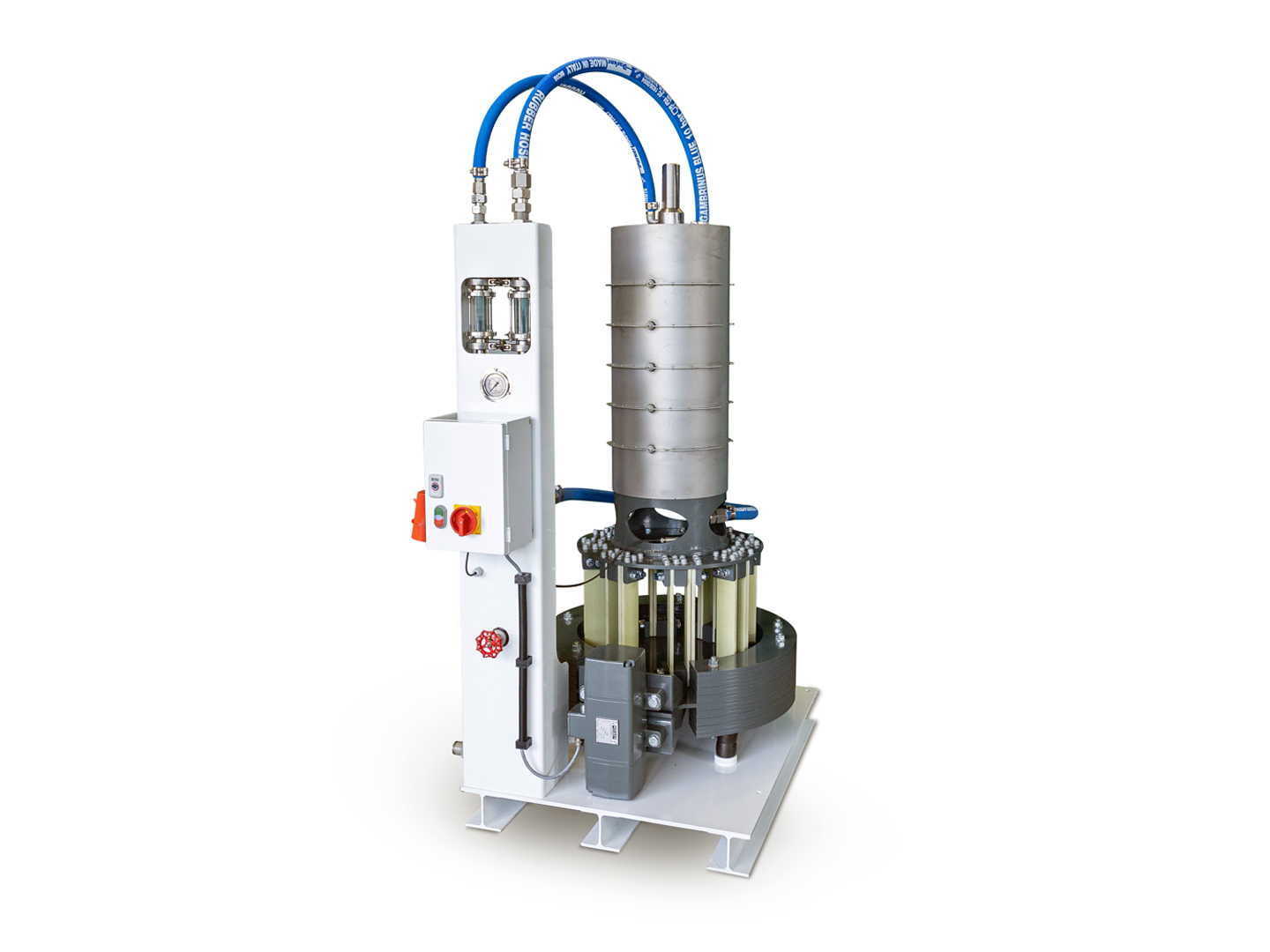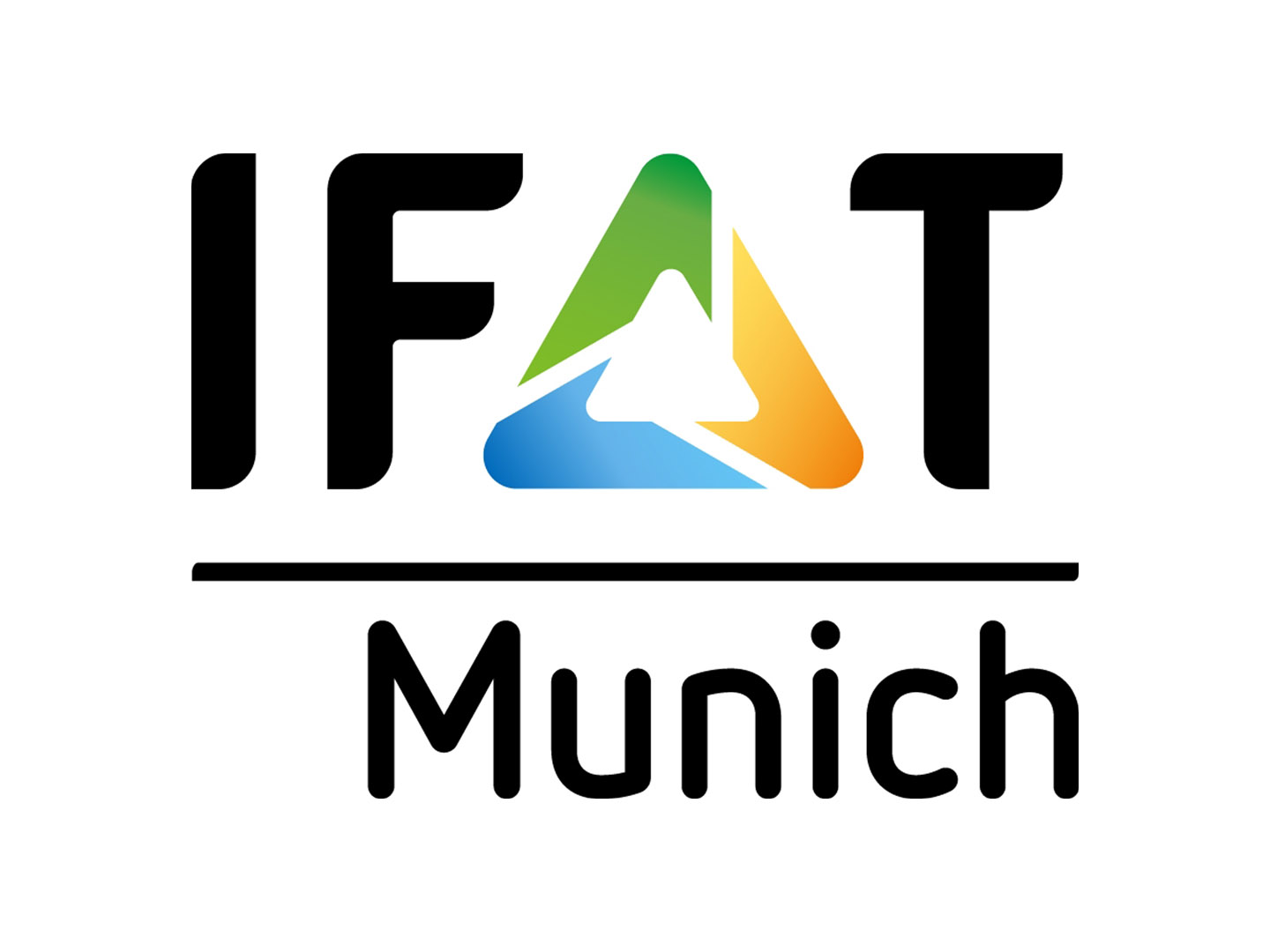IFAT 2024
Circulating water
Under the motto "Water reuse for a sustainable future", Fraunhofer UMSICHT is presenting various technologies for water recycling and wastewater treatment at this year's IFAT in Munich. The focus is on the improved separation of pollutants and greater resource and energy efficiency.
Due to climate change and population growth, water is becoming an increasingly scarce resource. In addition, environmentally relevant substances such as trace substances, microplastics or PFAS are discharged through wastewater – with sometimes critical consequences for the ecosystem. Current wastewater treatment technologies are resource-intensive and costly and have not yet been widely used. They are also only effective to a limited extent, for example because the fourth purification stage of a wastewater treatment plant cannot remove all trace substances. This is another reason why there is currently no comprehensive water reuse to relieve our water supply systems.
Fraunhofer Water Systems Alliance "SysWasser": treating wastewater streams
In the Fraunhofer Water Systems Alliance "SysWasser", a total of nine Fraunhofer Institutes, including Fraunhofer UMSICHT, are pooling their expertise in research and development on the subject of the water cycle. Their common goal is to technically treat wastewater streams from industrial processes and municipal wastewater treatment in such a way that water can be reused in the process and/or no environmentally critical substances are released into nature. "We want to treat and recycle water in various scenarios, for example in industrial processes or reuse in agriculture," explains Lukas Rüller from Fraunhofer UMSICHT. At the same time, acids and alkalis are to be recovered from chemical processes or the steel industry and thus recycled.
As part of the "SysWasser" project, the Oberhausen research institute is responsible for membrane technology, among other things. A robust technology that can be flexibly applied centrally or decentrally. Individual solutions are used depending on the application and the components to be removed: forward osmosis, reverse osmosis, ultrafiltration or nanofiltration. A new type of oscillating filter helps to increase energy efficiency. Adsorber resins or CDI systems (capacitive deionization) are suitable for the specific removal of trace substances. These reversible adsorption technologies enable the regeneration and reuse of the adsorber material, which in turn minimizes material consumption and at the same time optimizes energy consumption.
Lukas Rüller: "A major advantage of our wastewater treatment offering is that it not only saves costs and resources, but can also enable the recovery of potentially valuable wastewater components."
Welcome to the IFAT stand
At this year's IFAT, Fraunhofer UMSICHT will be exhibiting the oscillating filter module and other technologies for wastewater treatment. Interested trade fair visitors can also find out about the use of CO2 for the production of platform chemicals and the "Biolectid" project. In a bio-electrochemical fermentation process, bio-based succinic acid is produced from glucose and CO2 from a biogas plant. Technical approaches for the production of biomethane from CO2 from a biogas plant and green hydrogen will be demonstrated. There is also information on the biological testing laboratory, where certified tests are carried out on the degradation of products such as plastics in the environment (compost, soil, etc.).
Fraunhofer UMSICHT from May 13 to 17, 2024 at IFAT in Munich: Booth B2.338. We look forward to your visit.
 Fraunhofer Institute for Environmental, Safety and Energy Technology UMSICHT
Fraunhofer Institute for Environmental, Safety and Energy Technology UMSICHT
